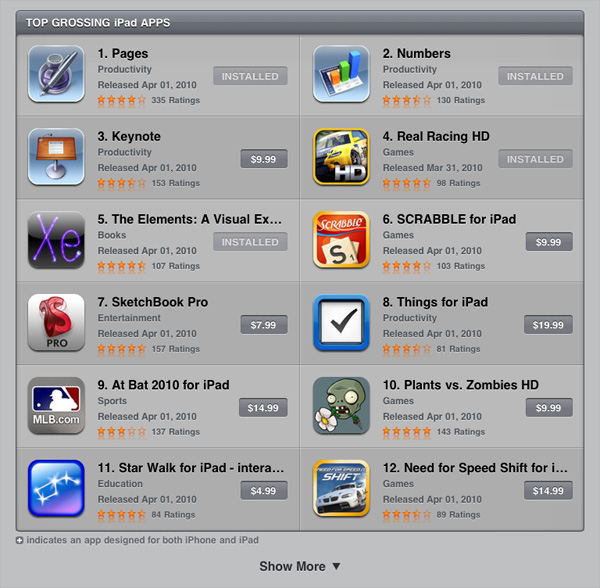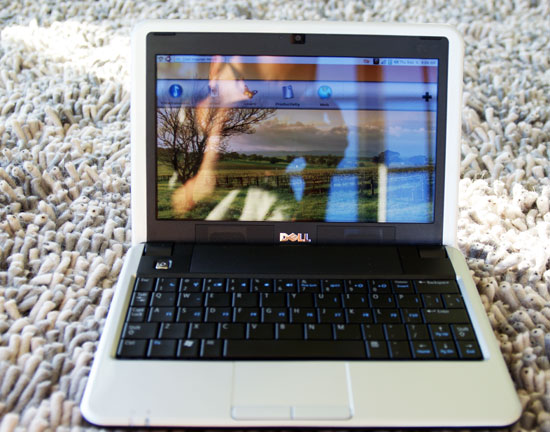Anand's Thoughts on Google's Chrome OS
by Anand Lal Shimpi on December 8, 2010 6:23 PM ESTFifteen years ago if you wanted to write an application that would run on over 90% of the world’s personal computers, you only needed to target one OS. Today, to do the same, you’d need to develop for ten - Windows, Linux, OS X, Android, iOS, webOS, BlackBerry OS, Symbian, MeeGo and of course, the web.
You don’t get order without first having chaos and you don’t end up with consolidation without first going through fragmentation. The PC era was dominated by Microsoft and Intel. The transition to ubiquitous computing allowed for many more competitors, which results in a great deal of fragmentation up front.
The goal however, is the same. Every player in this space wants to be what Microsoft was during the PC era. Even the actions are the same. There’s no interoperability between platforms, there are closed door negotiations and exclusivity agreements resulting in a number of alliances that are not easily broken.

Microsoft’s leverage is existing revenue stream. Its partners want to continue to receive favorable terms for existing PC shipments and thus tend to avoid embracing Google or other non-Microsoft OSes too eagerly. Google’s leverage is the promise of a very un-Microsoft future. Lower costs, friendlier terms and the ability for its partners to get in on the ground floor of something big. Neither approach is guaranteed and aligning yourself with one company is risky. The rest of the players are vertically integrated hardware vendors that are trying to mimic the success that Apple has had with iOS and OS X (e.g. HP/Palm, RIM). MeeGo is the only exception there as Intel/Nokia want it to be treated as an alternative to Android.
Then there’s the web. The most universal of all of the platforms, the web isn’t controlled or dominated by any one company. Great open source browser projects have ensured that nearly all of the platforms I listed above have great ways to access the web, and most can run any app you’ve got on the web.
PCs are the more traditional portal to the web. Sure they can do much more than run a web browser, but as web applications and services grow more powerful, the list of things you have to do outside of a browser window shrinks. This is especially true for mainstream consumers who check their email in a web browser, get their news in a web browser, chat in a web browser, watch videos in a web browser and listen to music, all within a browser window. In fact, the netbook was born out of the idea that you don’t need a huge transistor budget to provide the silicon that can drive a browser and the apps you run on top of it.
Fifteen years ago most households had one computer, if that. These days you might have five within a single room (desktop, notebook, smartphone, media streaming box and tablet). Households didn’t become infinitely more wealthy over the past two decades - the cost of these secondary and tertiary computing devices just dropped. Moore’s Law enables two things: more processing power at the same cost, or equivalent processing power at a lower cost. Iterate the Law a few times and you’ll eventually be able to create silicon that’s fast enough for specific tasks at a very low cost. Shrinking transistor feature sizes, costs and high levels of silicon integration gave us the fast enough ARM based SoCs that enable today’s awesome smartphones, as well as the Atom processor that created the netbook industry.

Interestingly enough, the problems that impact the high end of the market also impact this fast enough segment of the market. At the high end we’ve got tons of compute, storage and IOPS thanks to multicore CPUs/GPUs, low memory costs and SSDs, but we don’t have a lot of software to really tax it all. Believe it or not, the same gap exists at the low end. The difference is that while Atom is more than fast enough to run a web browser, it’s typically burdened by a heavy weight OS that hampers the user experience.










104 Comments
View All Comments
Roland00Address - Wednesday, December 8, 2010 - link
Netbooks are routinely $300 or less now. $300 for a 6 cell, 160 gb hard drive for the everyday price of a Netbook in a retail store. If you wait for a sale the price is usually $249 to $279, and on a mega sale like black friday you can get a netbook for $199 (though usually a 3 cell battery). You can get a dual core atom n550 netbook for $329 to $349 (not on sale, the normal everday price at a retail location.).The cost of a Windows 7 Starter license is between $45 and $55
http://arstechnica.com/microsoft/news/2009/06/micr...
http://www.sunrainet.com/windows-7-starter-edition...
Google is expect there chrome netbooks to be $300 to $400. Sure part of this cost is the obscene cost of a Gobi modem (which you can get for about $100 retail) but this obscene price for a Gobi modem eats away the microsoft tax and more.
------
I am just trying to see the value of Chrome as it currently is implemented. I understand it will be virus free and feel faster than a typical netbook. The problem is you will be hard pressed to sell this to the normal individual. Furthermore with the upcoming AMD Brazo (Low Power fusion) coming out in q1 2011 and retailing in the $300 to $500 range netbooks are going to feel less slow then they do now. Thus the only real advantages is it boots faster and is virus free; what you lose is all the productivity that current windows offers.
Right now Google is offering an all or nothing for $300 to $400 bucks you can have a windows netbook something you already know and understand or you can have a google chrome netbook, something that is new and at first glance to a "normal individual" looks more limited.
Personally I think Chrome would make more sense as an add-on to existing netbooks. If google dropped the Gobi modem requirement, then all OEMs would have to do is add a few gbs of flash memory via a mini pci express slot. You can have your windows as well as your linux operating system that boots very quickly, feels faster, and has all these free google apps. Google will still get their fabalous data mining and advertising engine and they will get it into more people's hands and thus more eyeballs.
gr00 - Friday, January 14, 2011 - link
I agree on the pricing calculation. In my book for such a device hardware-wise and software-wise should feel like a natural evolution of netbook. Therefore should cost the same since they offer same or trade-off features.Most mobile phones could do these things if there was need.
The biggest strength of Chrome OS is the unification of tendencies during the last year or two: netbooks + web apps + cloud + ssd + new OS.
It imho bases a new idea of casual un-personal trustfull computing which will soon become a rival to todays PC computing.
kmmatney - Wednesday, December 8, 2010 - link
I personally removed the Caps lock key from my work keyboard - it did more harm than good.tipoo - Wednesday, December 8, 2010 - link
IT WILL HELP THE INTERNET FOR OBVIOUS REASONSExodite - Wednesday, December 8, 2010 - link
Win of the day.racerx_is_alive - Wednesday, December 8, 2010 - link
Removing the Caps Lock key is one thing, replacing it with a search button is something else entirely.Instead of having to go back and erase a few all caps letters, you get a brief lag while it brings up a search box? A browser window? Something that steals the focus either way, and keeps you letters from going where they are supposed to be.
I'm not sure that's progress.
kmmatney - Wednesday, December 8, 2010 - link
I need it on my home machine for games, though.mino - Wednesday, December 8, 2010 - link
$20 for 1GB ? Reasonable ? Are hope you are not serious.wait, there is more:
$50 for 5GB ? WTF ? and ZERO unlimited plans ? Are you joking ?
OK, to be clear:
I had $20 2GB plan in 2004(!) with USB EDGE modem in plan
- mind you, it was in no way subsidized, they made big money on these)
Now, I have, $15 plan, with 5GB FUP and no overcharge, USB 3G modem in plan
- FUP == 64kbps after you go over it
I can also upgrade to 20GB plan (FUP, no oevrcharge) for $30, just for kicks of it.
All this in Slovakia, a VERY mountainous country, with 40% rural population (think <3000 villages), with 90% 3G/99% EDGE population coverage and ~$10k average yearly gross income.
Why am I saying it ? Because from long-term mobile user experience 2GB plan, while OOK in 2004, is a joke in the time of YouTube. Hell those 5 gigs are barely there (so the FUP really helps me here).
In the end they are selling a $400 "notebook" that is pretty much useless without $50 monthly "monopoly tax".
Sound a real bargain up from here ...
/sorry but I had to write this rant.
The idea of respected journalist believing $20/GB rates are reasonable in 2010 is just SO WRONG.
Anand Lal Shimpi - Wednesday, December 8, 2010 - link
I agree that data plans are way overpriced, my praise is really due to the free 100mb per month and no contract requirements. Those two make me happy, but yes I'd like to see an overhaul of the rest of the pricing structure.Take care,
Anand
mino - Thursday, December 9, 2010 - link
In my experience 100MB is about 1/2 a day of conservative browsing so it is more of a teaser that anything.Well is actually the single good thing that no-agreement part. Otherwise this looks a pure cash cow for Telcos.